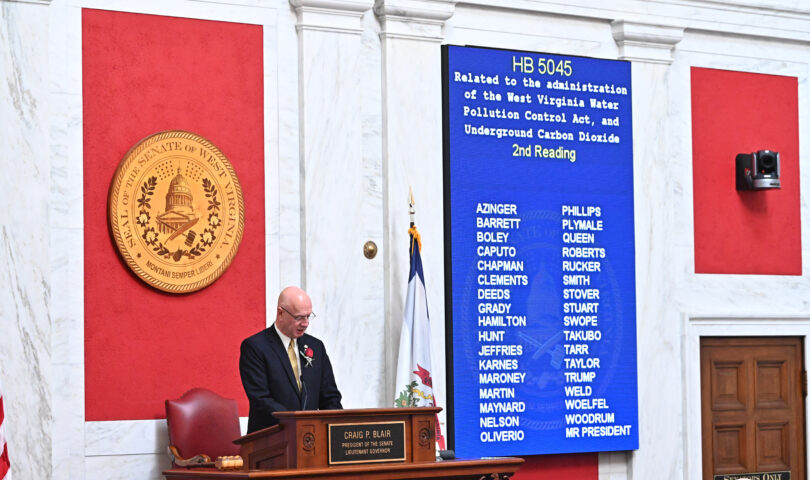MORGANTOWN – The Senate on Friday passed a bill to address the frustration of vehicles driving too slowly in the left lane of a highway, and one concerning carbon sequestration to pave the way for economic development projects.
SB 441 forbids driving in the left lane of a multi-lane highway, with six exceptions: overtaking and passing a vehicle in the right lane; when other lanes are closed; when other lanes are in disrepair and undrivable; when preparing for a left-lane exit; when approaching a stationary emergency vehicle; and, amended in by Sen. Patricia Rucker, R-Jefferson, on Friday, when congestion or traffic conditions make it necessary, as long as it doesn’t impede traffic flow.
Rucker said her amendment was adapted from a similar law passed in another state.
Sen. Mike Oliverio, R-Monongalia, wondered if state code addresses passing in the right lane. Judiciary chair Charles Trump, R-Morgan did a quick search and saw that it does make allowances under certain conditions.
The bill passed 32-0 and goes to the House.
HB 5045 is the sequestration bill. The Senate and House both advanced identical bills through committee and to their respective floors.
The Senate’s was SB 596, which contained some agency-requested technical amendments, Senate Energy chair Randy Smith, R-Tucker, told his colleagues on Thursday.
Procedurally, the Senate patched its amended bill into HB 5045 on Thursday and sent SB 596 to the Rules committee, effectively killing it. The Senate then passed HB 5045 32-0 and will send it back to the House for concurrence.
HB 5045 makes code changes needed for the U.S. EPA to grant the state primacy over the EPA for permitting Class VI underground injection (UIC) wells used for carbon capture and sequestration (CCS).
That permitting authority currently belongs to the EPA, which is notorious for dragging its feet and taking years to approve permits.
Deputy Department of Environmental Protection Secretary Scott Mandirola previously told the Senate Energy Committee that the details of the bill were crafted in consultation with the EPA and will consummate the application process that began in 2021 to enable the EPA to grant primacy.
The bill affects two sections of state environmental code: the Water Pollution Control Act and the 2021 Underground Carbon Dioxide Sequestration and Storage Act. It codifies that the state has appropriate enforcement authority for violations regarding carbon sequestration wells and the Water Pollution Control Act.
The EPA has reviewed all draft documentation and is requiring these code changes as the last step for submission of the final application package.
Another important element of the bill is extending the wait time for release of liability for a Class VI UIC well. It’s currently 10 years and the bill extends it to either 50 years or the discretion of the DEP secretary, based on a site-specific determination. The wait time exists to ensure the well formation’s integrity and that no CO2 is migrating or threatening water supplies.
Smith told the Senate on Thursday that the DEP would like to have the bill completed and signed next week so it can move ahead with its final package.
North Dakota, Wyoming and Louisiana are the only three states with Class VI UIC permitting primacy, and West Virginia would become the fourth. Mandirola said in committee, “We are next in line. … We would like as a state to be the ones to permit that, and not the EPA.”
Email: dbeard@dominionpost.com




